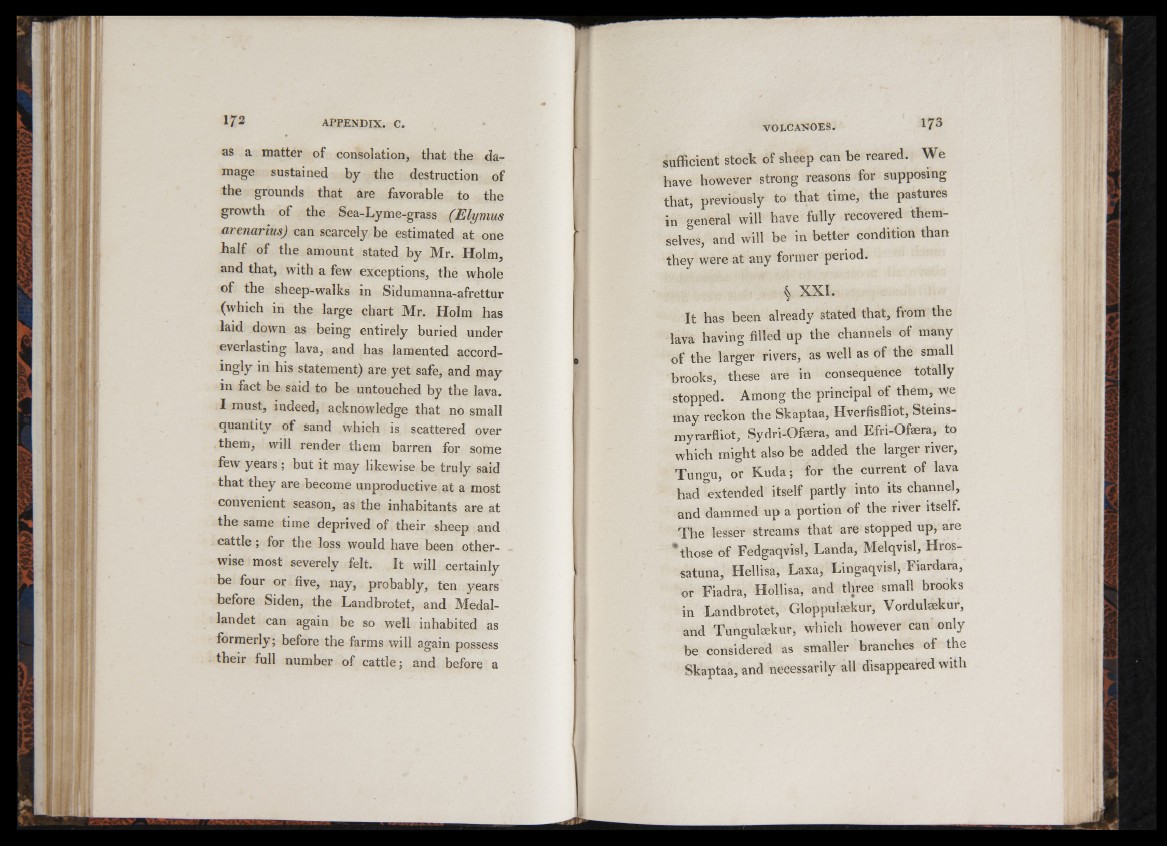
as a matter of consolation, that the damage
sustained by the destruction of
the grounds that are favorable to the
growth of the Sea-Lyme-grass (Elymus
arenarius) can scarcely be estimated at one
half of the amount stated by Mr. Holm,
and that, with a few exceptions, the whole
of the sheep-walks in Sidumanna-afrettur
(which in the large chart Mr. Holm has
laid down as being entirely buried under
everlasting lava, and has lamented accordingly
in his statement) are yet safe, and may
in fact be said to be untouched by the lava.
I must, indeed, acknowledge that no small
quantity of sand which is scattered over
them, will render them barren for some
few years; but it may likewise be truly said
that they are become unproductive at a most
convenient season, as the inhabitants are at
the same time deprived of their sheep and
cattle; for the loss would have been otherwise
most severely felt. It will certainly
be four or five, nay, probably, ten years
before Siden, the Landbrotet, and Medal-
landet can again be so well inhabited as
formerly; before the farms will again possess
their full number of cattle; and before a
sufficient stock of sheep can be reared. We
have however strong reasons for supposing
that, previously to that time, the pastures
in general will have fully recovered themselves,
and will be in better condition than
they were at any former period.
§ XXI.
It has been already stated that, from the
lava having filled up the channels of many
of the larger rivers, as well as of the small
brooks, these are in consequence totally
stopped. Among the principal of them, we
may reckon the Skaptaa, Hverfisfliot, Steins-
myrarfliot, Sydri-Ofera, and Efri-Ofaera, to
which might also be added the larger river,
Tungu, or Kuda; for the current of lava
had extended itself partly into its channel,
and dammed up a portion of the river itself.
The lesser streams that are stopped up, are
mthose of Fedgaqvisl, Landa, Melqvisl, Hros-
satuna, Hellisa, L a x a , Lingaqvisl, Fiardara,
or Fiadra, Hollisa, and three small brooks
in Landbrotet, Gloppulsekur, Vordulaekur,
and Tungulaekur, which however can only
be considered as smaller branches of the
Skaptaa, and necessarily all disappeared with